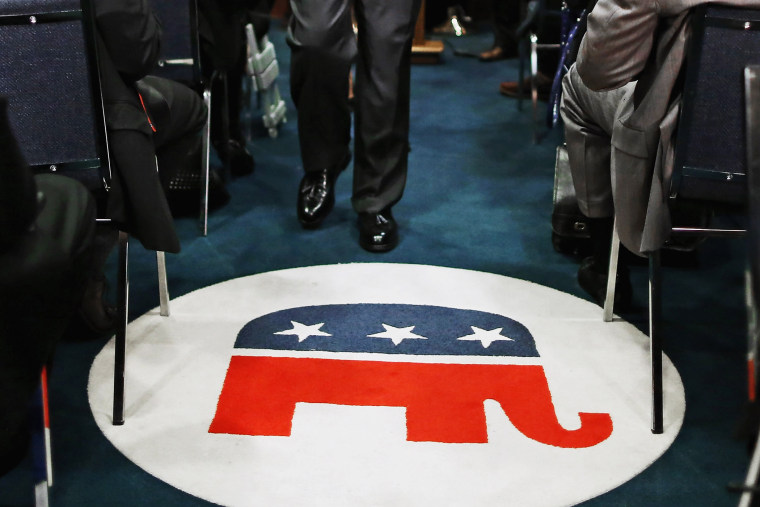In the primary era, only three incumbent presidents have lost re-election campaigns: Gerald Ford in 1976, Jimmy Carter in 1980, and George H.W. Bush in 1992, Each of them had something important in common: they were the only modern incumbent presidents to face primary challengers.
With this in mind, Donald Trump and his political operation have spent months, not only keeping an eye on possible intra-party rivals, but also on taking deliberate steps to control state GOP operations to ensure a smooth re-nomination process in 2020.
Politico reports today that those efforts are starting to pay off in the form of canceled Republican nominating contests.
Four states are poised to cancel their 2020 GOP presidential primaries and caucuses, a move that would cut off oxygen to Donald Trump's long-shot primary challengers.Republican parties in South Carolina, Nevada, Arizona and Kansas are expected to finalize the cancellations in meetings this weekend, according to three GOP officials who are familiar with the plans.The moves are the latest illustration of Trump's takeover of the entire Republican Party apparatus. They underscore the extent to which his allies are determined to snuff out any potential nuisance en route to his renomination -- or even to deny Republican critics a platform to embarrass him.
In fairness, it's worth emphasizing the fact that both major parties have, on multiple occasions, scrapped presidential primaries and caucuses in years in which there's an incumbent president running for a second term. Democratic officials in plenty of states, for example, canceled nominating contests in 2012 during Barack Obama's re-election campaign. GOP officials in several states did the same thing in 2004 for George W. Bush.
There wasn't anything especially untoward about any of this: it's expensive to administer primaries and caucuses, and when there's an incumbent president running effectively unopposed within his or her party, it stands to reason state officials would balk at wasting scarce resources.
But therein lies the rub: when an incumbent president isn't running unopposed, it's a different story.
Donald Trump is obviously the overwhelming favorite to win his party's 2020 nomination, but he's not without rivals. I don't just mean unknown token opponents who are running for fun; I mean there are actual Republicans who've won multiple elections for major offices vying for the GOP nomination.
Former Gov. William Weld was elected to statewide office twice. Joe Walsh was elected to Congress. Mark Sanford was a two-term governor and a three-term congressman, and while he hasn't yet announced his intentions, the South Carolinian appears to be moving closer to a national campaign.
Are any of these Republicans likely to defeat Trump in a primary? No. But they're not just vanity candidates, either, and it's not unreasonable to think the party's voters deserve a choice, even if they're likely to choose the incumbent.
